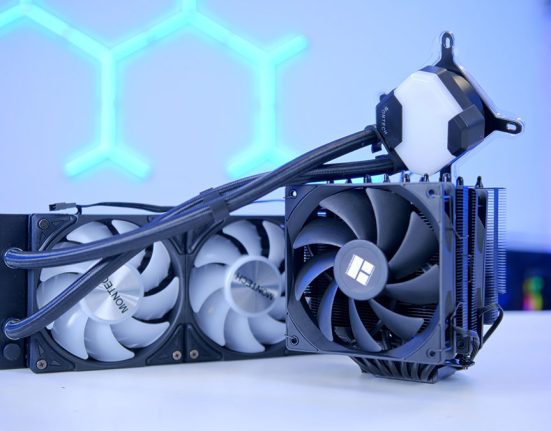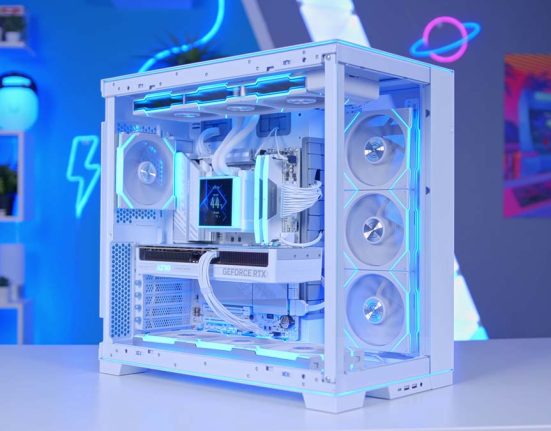The NVIDIA GeForce RTX 5070 is a powerful graphics card targeting the mid-range market. This card offers a decent performance uplift at 1440p and 4K in modern games compared to its predecessor, the RTX 4070. However, if you’re looking to build a new PC, what CPUs are the best options to pair up with the RTX 5070? To answer this question, we’ve put a range of CPUs through the wringer, testing and benchmarking them to determine which processors offer the best performance and value with the RTX 5070.
This article looks at the best processors for the RTX 5070, where we discuss the specs for each CPU, the pros and cons of each option and their performance benchmarks.
The Best CPUs for the RTX 5070
1. AMD Ryzen 7 9700X

For several reasons, the AMD Ryzen 7 9700X is our top pick in this buyer’s guide. The first of these is its strong gaming performance. The Ryzen 7 9700X features eight cores, sixteen threads, and a boost clock speed of 5.5GHz, enabling it to quickly read, write, and execute instructions in games. Additionally, this CPU has a low power draw of 65W, resulting in reasonably low overhead, meaning the Ryzen 7 9700X can sustain its high clock speed within your favourite titles.
Thanks to the low power budget, the Ryzen 7 9700X’s thermals can also be easily managed. Ryzen 9000 doesn’t share the same thermal limitations as Ryzen 7000, so you can install an air cooler without issue. A fully robust liquid cooler is not required for the Ryzen 7 and Ryzen 5 models. This is further enhanced by enabling AMD’s ECO mode, which sets power limits that continue to lower temperatures.
| Key Specs | AMD Ryzen 7 9700X |
|---|---|
| Core Count | 8 |
| Thread Count | 16 |
| Base Clock Speed | 3.8GHz |
| Boost Clock Speed | 5.5GHz |
| Max Cache | 40MB |
| Default TDP | 65W |
| CPU Socket | AM5 |
| Overclockable | Yes |
In terms of the rest of the specs, the AMD Ryzen 7 9700X has a 40MB cache and is fully overclockable, allowing you to increase performance across the board at the cost of stability. Furthermore, because the Ryzen 7 9700X uses the AM5 socket, those with an X670 or B650 motherboard won’t require an upgrade; however, if an upgrade is on the cards, you can look at our latest B850 motherboard recommendations.
Regarding weaknesses, the most significant for the Ryzen 7 9700X is its multi-threaded performance. Whilst eight cores are more than enough and are in fact the recommended amount for creative workloads like video editing and 3D modelling, this is only for a general user level. This CPU will struggle with more burdensome high-resolution workloads, which is where creative professionals will hit a roadblock. At that level, twelve cores and upwards are best for high-performance rendering setups or workstations; we recommend looking at a CPU like the Ryzen 9 9950X if you plan on pushing your system with multi-core applications.. You’ll find that the Ryzen 7 9700X is geared much more towards strong performance in the lighter-threaded applications like Adobe’s Photoshop or Sketch.
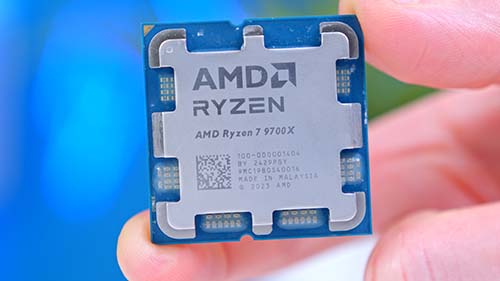
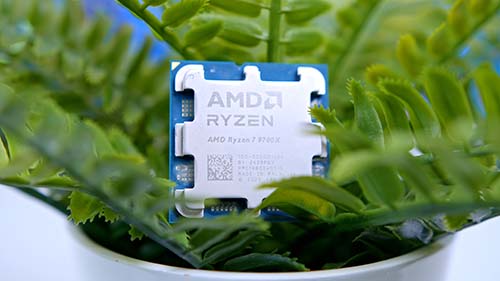
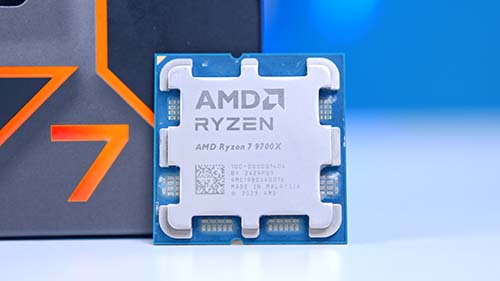
2. AMD Ryzen 5 9600X
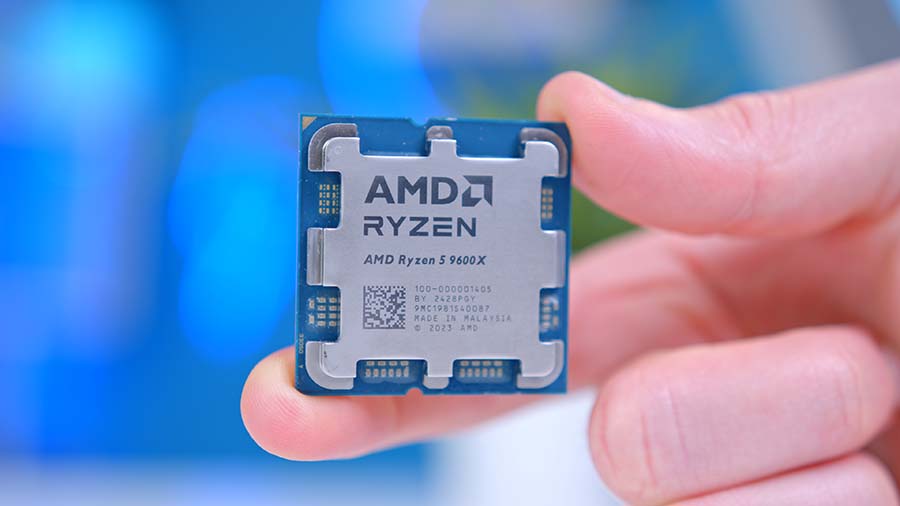
Next up is the AMD Ryzen 5 9600X. This is AMD’s budget option in the Ryzen 9000 range, but its performance is far better than what we’d consider “budget”. Much like the Ryzen 7 9700X, the main factor that makes this CPU stand out compared to the competition is its performance. The Ryzen 5 9600X also features an exceptionally low power budget, which means it doesn’t need to draw loads of power to sustain its strong boost clock speed of 5.4GHz.
The benefits of this are twofold. First is that the Ryzen 5 9600X offers low thermals. You can easily cool this CPU with an air tower cooler like the Cooler Master Hyper 212 or the AMD stock cooler if you’re looking to save some money. The second is that the Ryzen 5 9600X offers exceptional gaming performance in modern titles. The Ryzen 5 9600X is a highly powerful option when paired with the right graphics card.
| Key Specs | AMD Ryzen 5 9600X |
|---|---|
| Core Count | 6 |
| Thread Count | 12 |
| Base Clock Speed | 3.9GHz |
| Boost Clock Speed | 5.4GHz |
| Max Cache | 38MB |
| Default TDP | 65W |
| CPU Socket | AM5 |
| Overclockable | Yes |
Regarding the cons, for the Ryzen 5 9600X, the main factor to consider is that this is strictly a gaming CPU. The Ryzen 5 9600X only offers six cores and eight threads, limiting its capabilities within workstation tasks. If you plan to push your build with challenging threaded tasks, we again recommend a CPU with more cores than this processor has.
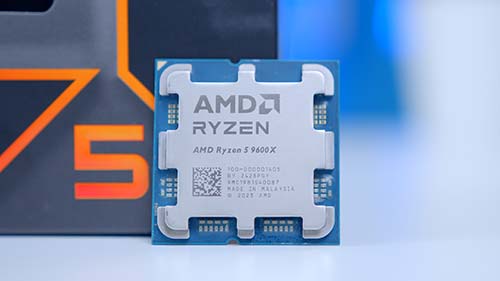
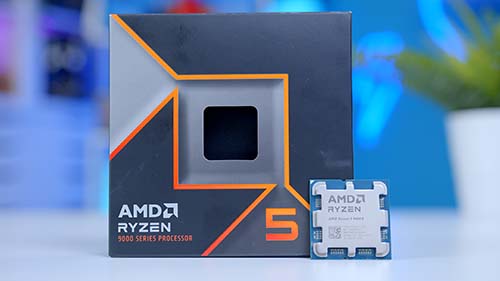
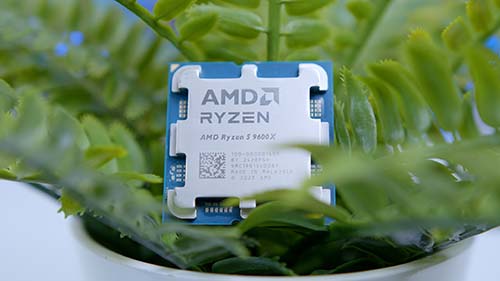
3. AMD Ryzen 5 7600
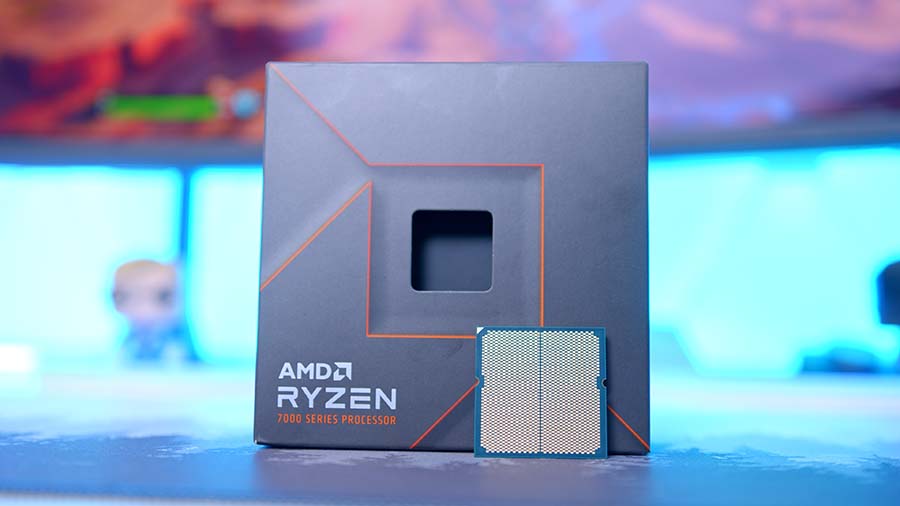
The last CPU we’re analysing in this buyer’s guide roundup is the AMD Ryzen 5 7600. We recommend this CPU for those building a budget RTX 5070 system. The Ryzen 5 7600 is an affordable processor geared towards those building a budget or mid-range PC. We’ve used the Ryzen 5 7600 in several high-performance PC builds prior to the release of Ryzen 9000 options.
The reason why this previous generation option is popping up in this roundup comes down to its pricing. On the performance front, the Ryzen 5 7600 sits close to the Ryzen 5 9600X, with the former capable of handling 4K and 1440p in modern AAA titles in comparison. This comes down to its low power budget and high clock speed. The Ryzen 5 7600 is priced very affordably, making it an excellent pickup for price-conscious builders.
| Key Specs | AMD Ryzen 5 7600 |
|---|---|
| Core Count | 6 |
| Thread Count | 12 |
| Base Clock Speed | 3.8GHz |
| Boost Clock Speed | 5.1GHz |
| Max Cache | 38MB |
| Default TDP | 65W |
| CPU Socket | AM5 |
| Overclockable | No |
Regarding the specs, the Ryzen 5 7600 and Ryzen 5 9600X are similar on paper. It has six cores, twelve threads, a boost clock speed of 5.1GHz and a default TDP of 65W. The major difference between them is that the Ryzen 5 7600 is not overclockable, as denoted by the ‘X’ at the end of the Ryzen 5 9600X. However, I feel most builders picking up this CPU won’t be worried about overclocking, especially given its out-of-the-box 5.1GHz boost clock.
On the weaknesses front, I think the Ryzen 5 7600 is a bit too close to the Ryzen 5 9600X in terms of pricing. If you’re willing to pay for a little more than the Ryzen 5 7600, you can get a more modern CPU that offers better performance and newer features. This isn’t a tremendous amount of money to spend on a reasonably hefty upgrade that I feel many prospective buyers will want to consider.
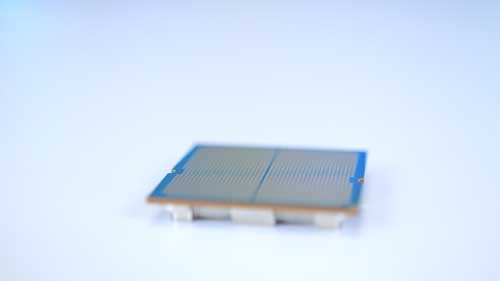
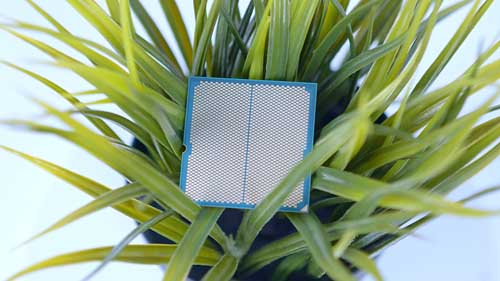
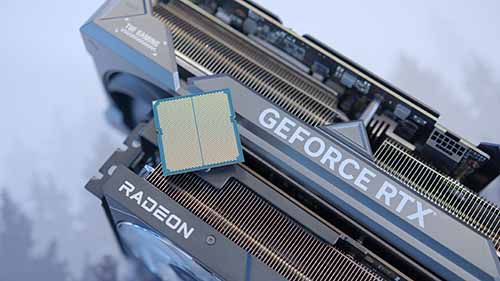
Performance
In this section, we’ll examine the performance of the CPUs we recommend in this buyer’s guide. Our in-house benchmarker, Harry Coleman, rigorously tests our data to ensure accuracy and fairness. The CPUs shown in the benchmarks below were tested in games with graphics settings set to 1080p and 1440p, and in two Cinebench benchmarks to assess their performance on single- and multi-core tasks.
Fortnite 1080p Competitive
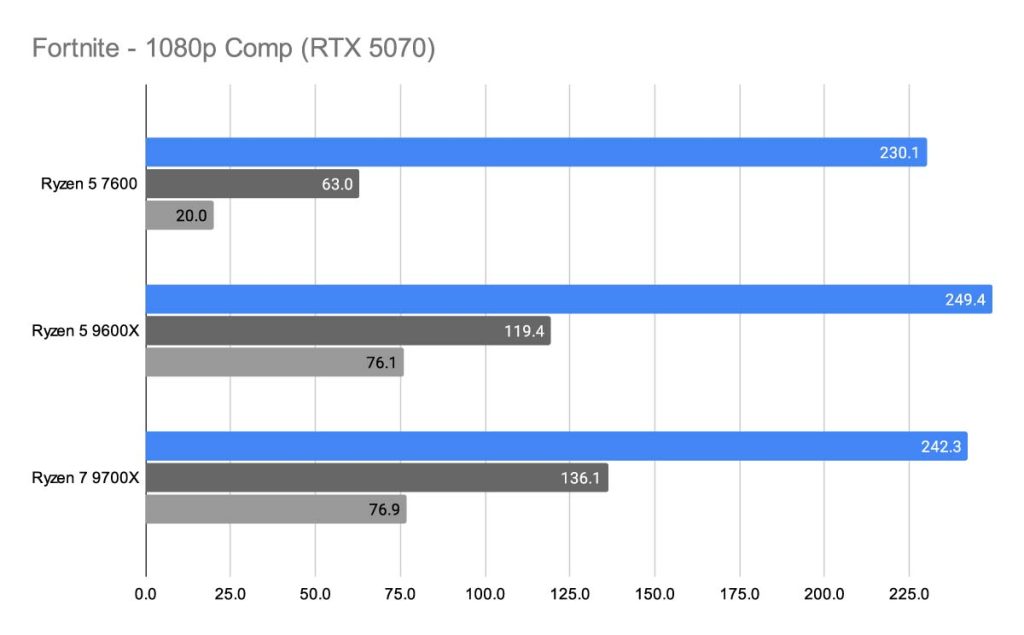
Our first game we used for testing was Fortnite. We set the graphics settings to 1080p and began testing. During our testing, we found that the Ryzen 5 9600X delivered the most frames on average, coming in at around 249.4 frames per second. It was then closely followed by the Ryzen 7 9700X, with 242.3 frames per second, and finally by the Ryzen 5 7600, with an average of 230.1 FPS.
While the Ryzen 5 9600X led in average framerate, the gap between it and the Ryzen 7 9700X was relatively narrow – just over 7 FPS. Interestingly, the 9700X showed stronger performance in 1% and 0.1% lows, with 136.1 and 76.9, respectively, compared to the 9600X’s 119.4 and 76.1. This suggests the 9700X may offer slightly smoother frame pacing during intense gameplay moments, despite the 9600X’s higher peak average.
The Ryzen 5 7600, while trailing in all metrics, still delivered a respectable 230.1 FPS average. However, its 1% and 0.1% lows of 63.0 and 20.0 indicate more noticeable frame dips, which could affect competitive responsiveness in fast-paced scenarios.
Marvel Rivals 1440p High

For Marvel Rivals, we upped the graphics settings to 1440p and found the results changed slightly. While the Ryzen 7 9700X claimed the top spot in average framerate for this game at 117.9 FPS, its real strength lies in sustained performance. With 1% lows of 77.1 FPS and 0.1% frame rate lows of 44.3, it offered the most consistent experience across the board. The Ryzen 5 9600X, though slightly behind the 7600 in peak FPS at 110.3, delivered a notably smoother ride, thanks to its higher average of 64.0 and lower minimum of 53.6 frames.
The Ryzen 5 7600, despite matching the others in peak output at 111.6 FPS, showed its limits under load. Its average dropped to 56.1, and its lowest frame rate hit just 37.0. This could be potentially noticeable during chaotic team fights or heavy particle effects, and due to the nature of this game, it’s expected that you would encounter these frequently.
Apex Legends 1440p High
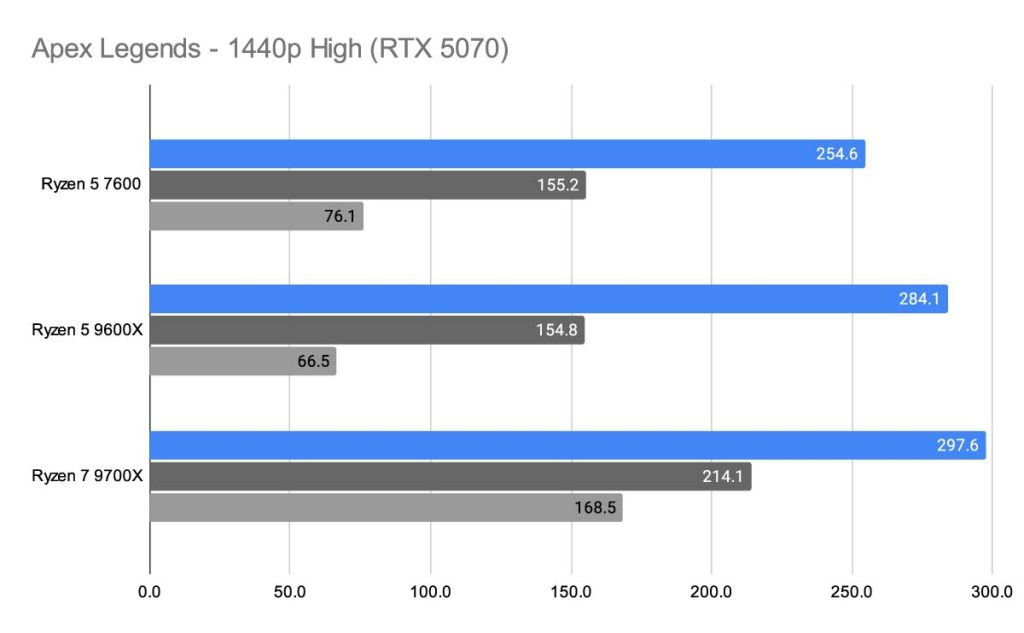
Lastly, we benchmarked the Ryzen 7 9700X, Ryzen 5 9600X, and Ryzen 5 7600 at 1440p with high graphics settings in Apex Legends, averaging 297.6, 284.1, and 254.6 FPS, respectively.
The Ryzen 7 9700X is a clear top-performer in this game, boasting 168.5 frames in even the toughest of rendering-intensive moments. What’s great about this result is that it is satisfactory even in ultra-competitive esports-level scenarios. The other two processors don’t even come close when the fighting gets frantic.
Overall, if your target is 1440p to 4K resolutions, the AMD Ryzen 7 9700X offers the robust, stable performance you’re seeking, and it’s set to last you for the next 3-5 years of gaming! This is all thanks to the slight difference in specs between the 9700X and the 9600X; the 9700X reduces some CPU bottlenecks that the 9600X doesn’t, thanks to its extra cores and threads, meaning that processes can be dealt with quicker on a larger scale, allowing your RTX 5070 to focus on the overall throughput during demanding scenarios.
Cinebench R23 (Multi-Core)
In this benchmarking run, the AMD Ryzen 7 9700X came out in front, with a score of 23393. The multi-core benchmark utilises all available cores, which for the Ryzen 7s are eight cores and sixteen threads, so it’s no surprise they beat the Ryzen 5 9600X and the Ryzen 5 7600. Compared to the rest of the market, none of the CPUs in this roundup are multi-core titans, but the Ryzen 7 offers much better performance than the 5 9600X and 7600, which are primarily built for single-core workloads. The AMD Ryzen 5 7600 sits towards the bottom of the graph in this run, but since this CPU isn’t aimed at multi-core tasks, we’re not entirely surprised, and the results sit exactly where they are expected to.
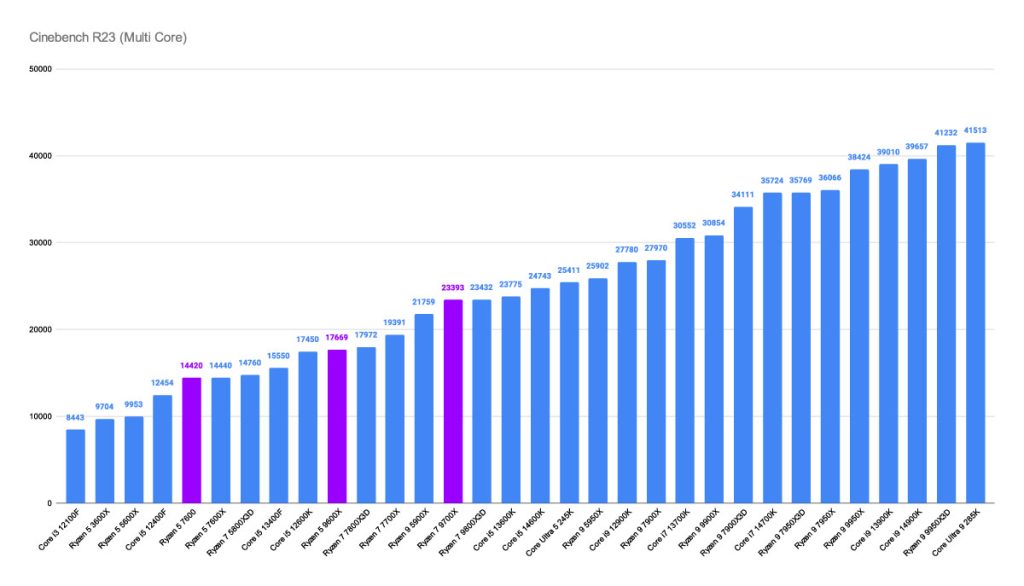
Cinebench R23 (Single Thread)
In our single-thread benchmark, the AMD Ryzen 5 9600X soars to the top of the graph with an impressive score of 2180, compared to the 2144 from the Ryzen 7 9700X and the 1868 from the Ryzen 5 7600. While the Ryzen 5 7600 is a strong competitor for delivering high frame rates in games, its raw single-core performance can’t quite match that of the Ryzen 7 9700X or Ryzen 5 9600X.
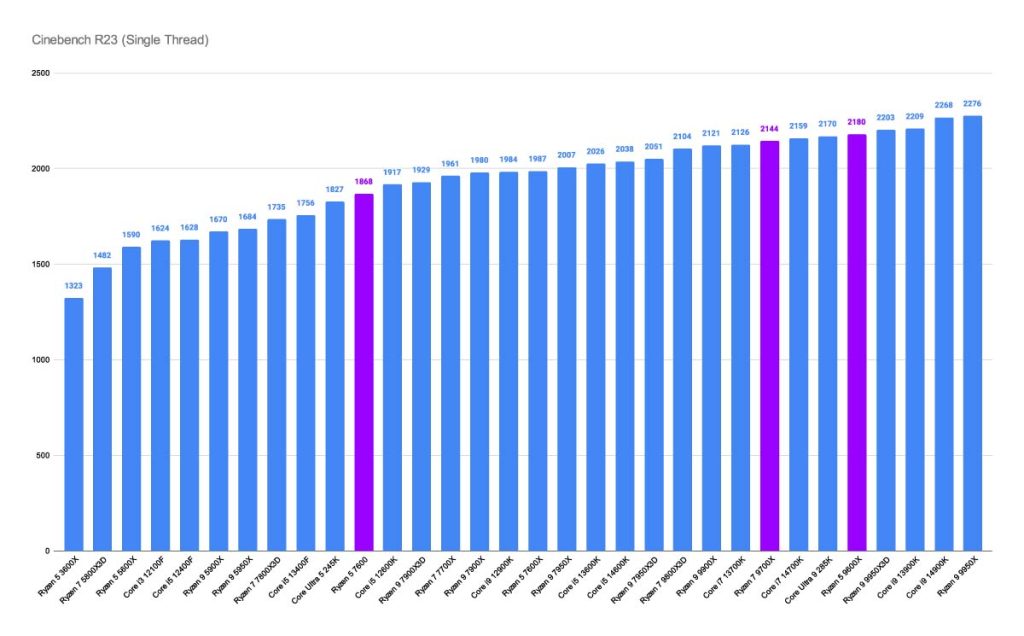


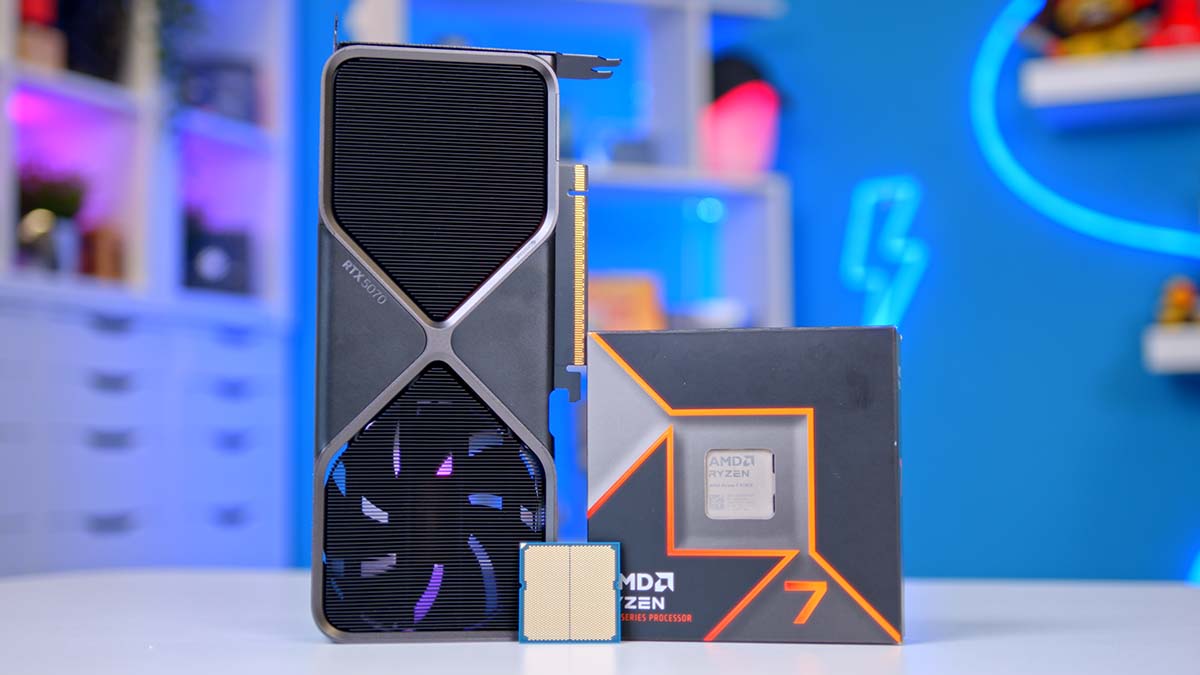
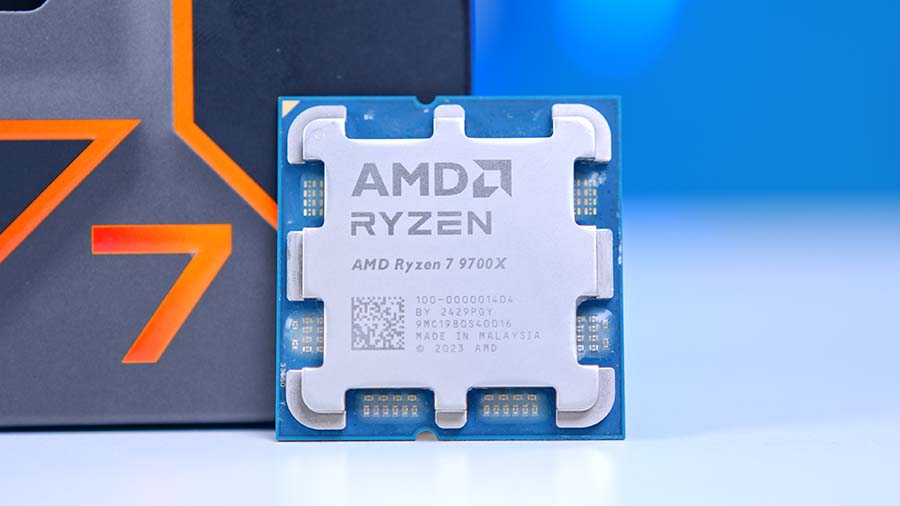
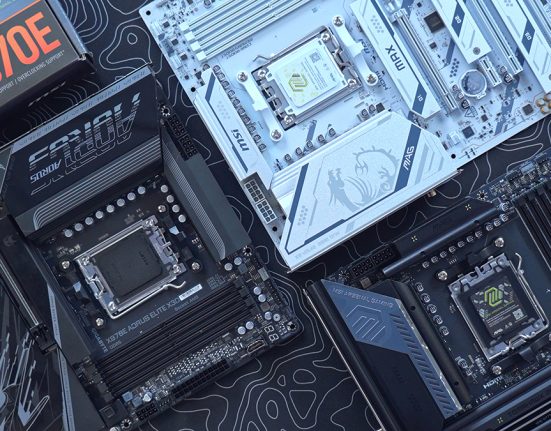
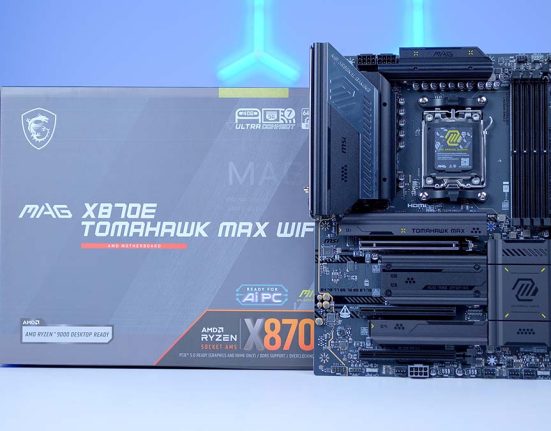
![FI_[DM82] TT MineCUBE Build](https://geekawhat.com/wp-content/uploads/2025/12/FI_DM82-TT-MineCUBE-Build-551x431.jpg)
![FI_[DP056] Antec flux M + 9060XT](https://geekawhat.com/wp-content/uploads/2025/12/FI_DP056-Antec-flux-M-9060XT-551x431.jpg)
